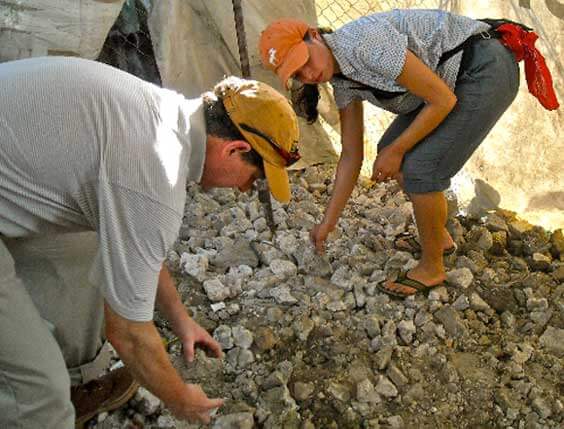The phone calls I was welcoming and dreading came recently in what seemed like rapid succession. The first was from 17-year-old Stephanie, who with just a few English words in her pocket was asking me to send her a few dollars so she could enroll in a nearby school. The second was from Pastor Raymond, who wanted to meet me when he came to New York and ask how I could help him repair his crumbling church.
I had befriended Stephanie and the pastor a year ago this month when I traveled to earthquake ravaged Haiti for eight days with one of the many non-governmental organizations that responded to the crisis. These groups ranged from well-financed and organized outfits like that led by the actor Sean Penn, to well-meaning, do-gooders who really didn’t have a clue. The NGO I signed up with—called “Orphans International”—fell somewhere in between. Although short-staffed, under-funded, and a tad disorganized, their ambitious agenda included finding and financing foster parents for children orphaned by the quake, creating a tent elementary school, and interviewing hundreds of high school graduates who might be eligible for college scholarships being offered by a university in China. All of this was being organized out of an outpost in Leogane, 20 miles west of Port-au-Prince and which sat on the epicenter of the quake. But the town was more like Leo-GONE, as the devastation and despair seemed to be everywhere.
A year later, I listened to the pleading voices of Stephanie and Pastor Raymond and my sense is that little in Haiti has changed for the better. Those fears are only confirmed when reading the sad facts in Internet stories. The world’s biggest afterthought, Haiti still has two-thirds of its 1.5 million people living in tents and only five percent of the up to 22 million cubic yards of heavy debris has been removed. This in spite of the $1.15 billion pledged to Haiti by the U.S., and the $9 billion pledged by other donor nations. The rebuilding of Haiti is in its infancy and at this rate could take decades.
It’s a situation that is just too depressing to think about and is the same feeling I had last March when driving to Leogane. When you see tens of thousands of people without food, water, clothing and shelter in every direction, all you want to do is make a miracle. When you can’t the frustration is overwhelming, but giving into it then—as now—was not an option. The macro is not achievable by any one person or even a group of people so the focus has to be on the micro.
When you can’t feed or clothe the multitudes, you pluck canned goods, baseball caps, t-shirts and whatever else you can spare out of your suitcase and give it to a homeless family living in a tent city.
When you can’t build a shelter that would be impervious to the rainy season, you haul out of a small tent the cinder blocks and stones that served as the mattress for seven people, including a 17-year-old National Team Soccer goalie that lost both her parents in the quake.
When you can’t give the hundreds of beautiful teenage girls who remind you of your daughter a nice allowance and stylish new clothes, you slip one a couple of bucks and some men’s clothes that she can barter for a clean blouse or a dress that isn’t three sizes too big.
When you can’t give a gaggle of athletic children a team’s worth of sports equipment, you gift a baseball glove and authentic major league hardball to your new 10-year-old friend from a tent city, and you play soccer with some orphaned kids who scrape by on one meal a day, little water and the kindness of strangers.
When you don’t have the resources to rebuild devastated homes, you stand humbly in front of a church congregation in a city that looks like London after a World War II bombing and you tell them how beautiful, strong, resilient and heroic they are.
And when you get the tightest hugs you have gotten in your life from the tent family, the soccer goalie, the teenage girl, the 10-year-old boy you wish you could adopt, and the pastor of the church, you come away knowing you have accomplished something small but significant and you feel like a citizen of the world.
My trip last year to post-earthquake Haiti was probably among the most sad and surreal, exhausting and exhilarating, gruesome and gratifying experiences of my life. I only hope I can figure out a way to help Stephanie and the Pastor and perhaps, in that small micro way, I’ll be helping the whole country.
Stephen Hanks is an advertising sales executive for the Community Newspaper Group and lives in Park Slope, Brooklyn.


























